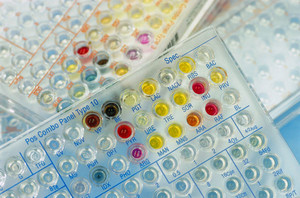Last update: 1 July 2011
The regulatory body for therapeutic goods in Australia is the Therapeutic Goods Administration (TGA).
 0
Post your comment
0
Post your comment
Last update: 1 July 2011
The regulatory body for therapeutic goods in Australia is the Therapeutic Goods Administration (TGA).

TGA is a division of the Australian Government Department of Health and Ageing, and is responsible for regulating therapeutic goods including medicines, medical devices, blood and blood products.
TGA administers the Therapeutic Goods Act 1989. This legislation provides a framework for a risk management approach that allows the Australian community to have timely access to therapeutic goods which are consistently safe, effective and of high quality.
TGA carries out a range of assessment and monitoring activities to ensure therapeutic goods available in Australia are of an acceptable standard with the aim of ensuring that the Australian community has access, within a reasonable time, to therapeutic advances.
Generic products are classified as Category 1 applications by the TGA. This means that a reduced dossier can be submitted for approval by the TGA. The amount and type of data that needs to be submitted for Category 1 applications varies depending on the nature of the product and the proposed use.
Overarching guidelines
These guidelines cover all prescription pharmaceutical products (including generics):
Australian regulatory guidelines for prescription medicines (ARGPM)
June 2004
www.tga.gov.au/pdf/pm-argpm.pdf
Bioequivalence guidelines
These guidelines are specifically related to bioequivalence studies for generic products:
An application for registration of a generic product in Australia should generally include a bioequivalence study versus a leading brand obtained in Australia.
Australian regulatory guidelines for prescription medicines (ARGPM)
Appendix 15: Biopharmaceutic studies
June 2004
www.tga.gov.au/pdf/pm-argpm-ap15.pdf
Source: TGA
Brazil and Mexico forge alliance to streamline medical approvals and boost production
EU accepts results from FDA GMP inspections for sites outside the US
The best selling biotechnology drugs of 2008: the next biosimilars targets
Global biosimilars guideline development – EGA’s perspective
US guidance to remove biosimilar comparative efficacy studies
New guidance for biologicals in Pakistan and Hong Kong’s independent drug regulatory authority
Canada poised to remove requirement for Phase III trials for biosimilars
European position paper on AI in medicinal product lifecycle



Post your comment